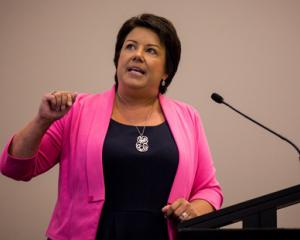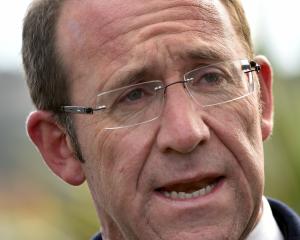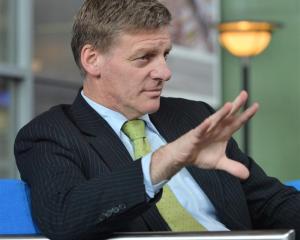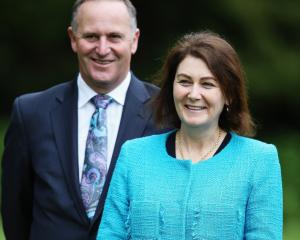
National Party MPs have opted for safety in throwing their support behind Bill English as prime minister.
Mr English emerged as the country's 39th prime minister after Judith Collins and Jonathan Coleman yesterday withdrew from the contest. A caucus vote on the top job scheduled for Monday will no longer take place.
The vacancy arose after Prime Minister John Key announced on Monday he was resigning from the role and would not be standing at the next election. Mr Key has been prime minister for eight years and National Party leader for 10.
In opting for Mr English, the MPs have decided the risk of having someone like Judith Collins lead them into the next election is not worth having, despite Ms Collins being the polarising force the party needs to jerk it out of a slumber to the 2017 election - whenever it is.
By late yesterday, more than 30 of 58 MPs had publicly pledged their support to Mr English, including Gerry Brownlee who has never been on the wrong side of a leadership contest while in Parliament. Once Mr Brownlee pledged his support, Ms Collins withdrew from the contest and pledged her support for the Finance Minister. Health Minister Jonathan Coleman withdrew from the contest at 4.30pm.
Clutha-Southland MP Todd Barclay was a late supporter of Mr English and must have been waiting for Ms Collins to make her decision before pledging publicly. Ms Collins has been a strong supporter of Mr Barclay as he faces a selection contest later this month.
Mr English will have the opportunity to change the current situation in which older white men are at the top of the party by having either Paula Bennett or Simon Bridges as his deputy. And with his position assured, the caucus will be lobbied hard by supporters of both Ms Bennett and Mr Bridges - both younger and both with Maori ancestry. Ms Bennett is an obvious choice but she blotted her copybook over social housing issues. Meanwhile, Mr Bridges has competently dealt with complicated roading issues.
Labour would be hard-pressed to criticise the party leadership if either MP was elected deputy. Economic Development Minister Steven Joyce will almost certainly become finance minister in place of Mr English.
More reshuffling is essential and some newer MPs are likely to be rewarded for their loyalty to Mr English. Backbench MPs Nuk Korako, Todd Muller, Chris Bishop and Alfred Ngaro are being picked for promotion.
Immigration Minister Michael Woodhouse, a Dunedin list MP, could be elevated to the health portfolio in place of Dr Coleman.
The Cabinet will need to be a mixture of experience and younger enthusiasm for voters to notice the changes.
Mr English left the Crown accounts in good shape for Mr Joyce to craft a Budget to ensure National faces the best possible chance of a fourth term, even without help of Mr Key.
News broke yesterday that former Labour leader David Shearer is likely to resign from Parliament to take a job at the United Nations, in Sudan, meaning a by-election will have to be called.
Mr English will need to decide whether to call an early election to test his own popularity or hold the Mt Albert by-election, accepting National would again lose despite winning the party vote in 2014. A by-election would stretch Labour's thin financial and people resources greatly and it must be tempting for National to push Labour harder.
One of the complicating factors for Mr English is his dry speaking manner and he is already being compared to Labour leader Andrew Little in style, but not substance. Uniting the National Party caucus will be a job for the new deputy as Mr English takes on the difficult job of replacing Mr Key, one of New Zealand's most popular prime ministers.













